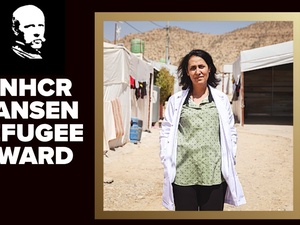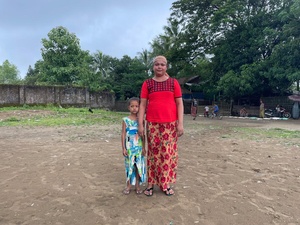Investing in better lives and brighter futures for displaced people in the Sahel
Investing in better lives and brighter futures for displaced people in the Sahel

Mohamed Ali, Mbera Tailor
In the Central Sahel – conflict has spread from Northern to Central Mali and far into Burkina Faso and Western Niger. Around 436,000 Malians have been forced to flee, close to 90,000 into the neighboring countries of Burkina Faso, Mauritania and Niger as well as over 346,000 within Mali. The spreading insecurity has also affected zones in which Malian refugees live in countries of asylum and caused massive internal displacement in Burkina Faso and Niger.
Thanks to the support of the European Union Emergency Trust Fund for Africa (EUTF), UNHCR provided support to Malian refugees, internally displaced and returnees to create livelihood opportunities to strengthen the resilience of displaced families and their host communities.
In addition, investments in water, school and health infrastructure as well as other projects benefitting the displaced populations as well as host communities improved the living conditions and peaceful coexistence. Here are a few examples of how the project changed lives for displaced in the Sahel:
Burkina Faso
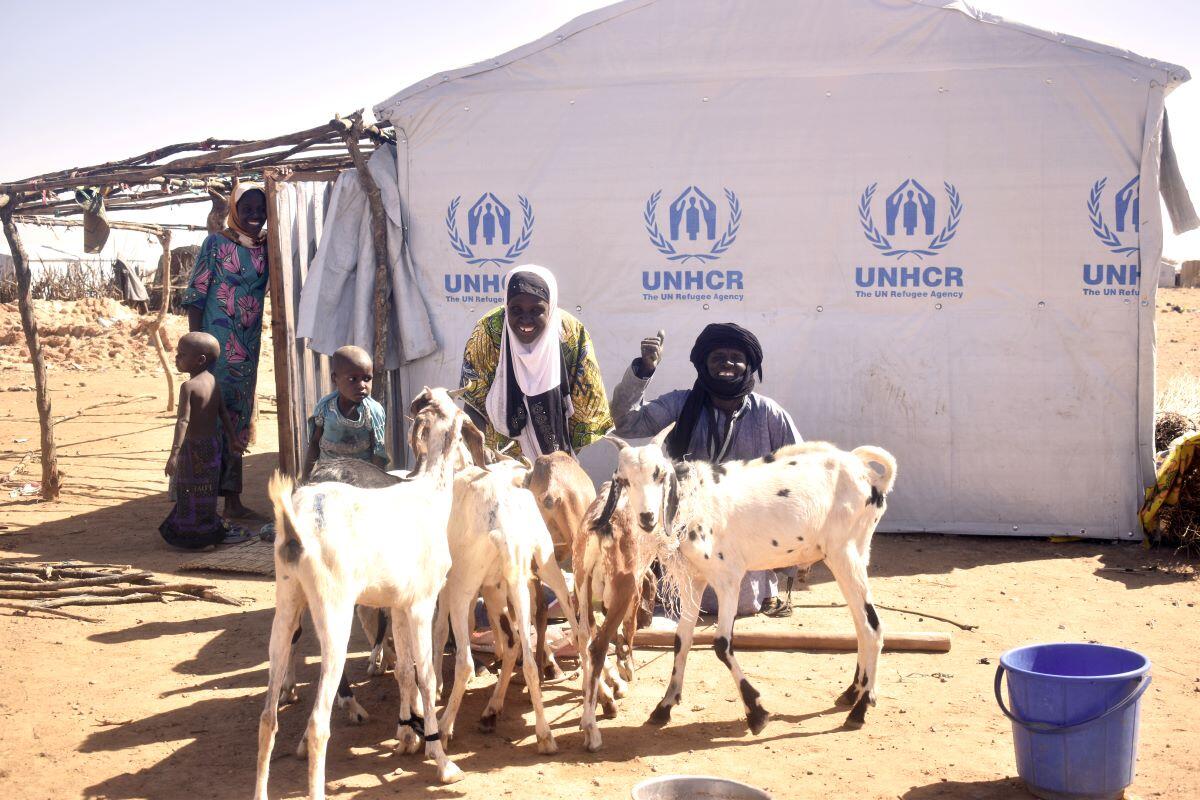
Malian refugee Mahamadou and his family received 10 goats to start their herd again in Burkina Faso after they were forced to flee an armed attacked on their camp.
Dori, Burkina Faso – Mahamadou Hama, 60, had lived in Goudoubo refugee camp since 2012 after fleeing Mali with his family. In March 2020, they were forced to flee again when the camp was attacked.
“Armed men came into the camp one night, and after they had tortured a family, they summoned us to leave the area within a five-day deadline”, said Mahamadou. “We feared for our lives. So, we packed up and left the camp.”
After the attacks Government authorities strengthened the security in and around the camp and UNHCR and its partners helped refugees to voluntarily return to Goudoubo camp in December 2020. Mahamadou and his family are back and feel safe to start a new life again, but unfortunately this also means finding new ways to support themselves.
“When we came back to Goudoubo, we had no livelihood. So, I was worried about how we would survive,” Mahamadou explained.
As part of an EUTF project to help rebuild the resilience of Malian refugees, UNHCR distributed animals to 440 vulnerable refugee families and 60 families from the host community. The assistance has helped the families restore their livestock and improve their livelihoods. “My family received 10 goats, including 8 female goats and 2 males. We are really happy and grateful, because we can breed these animals and have milk for the children,” Mahamadou said with a large smile. “And whenever necessary, we can sell out one or two goats to buy food for the family.”
Mali
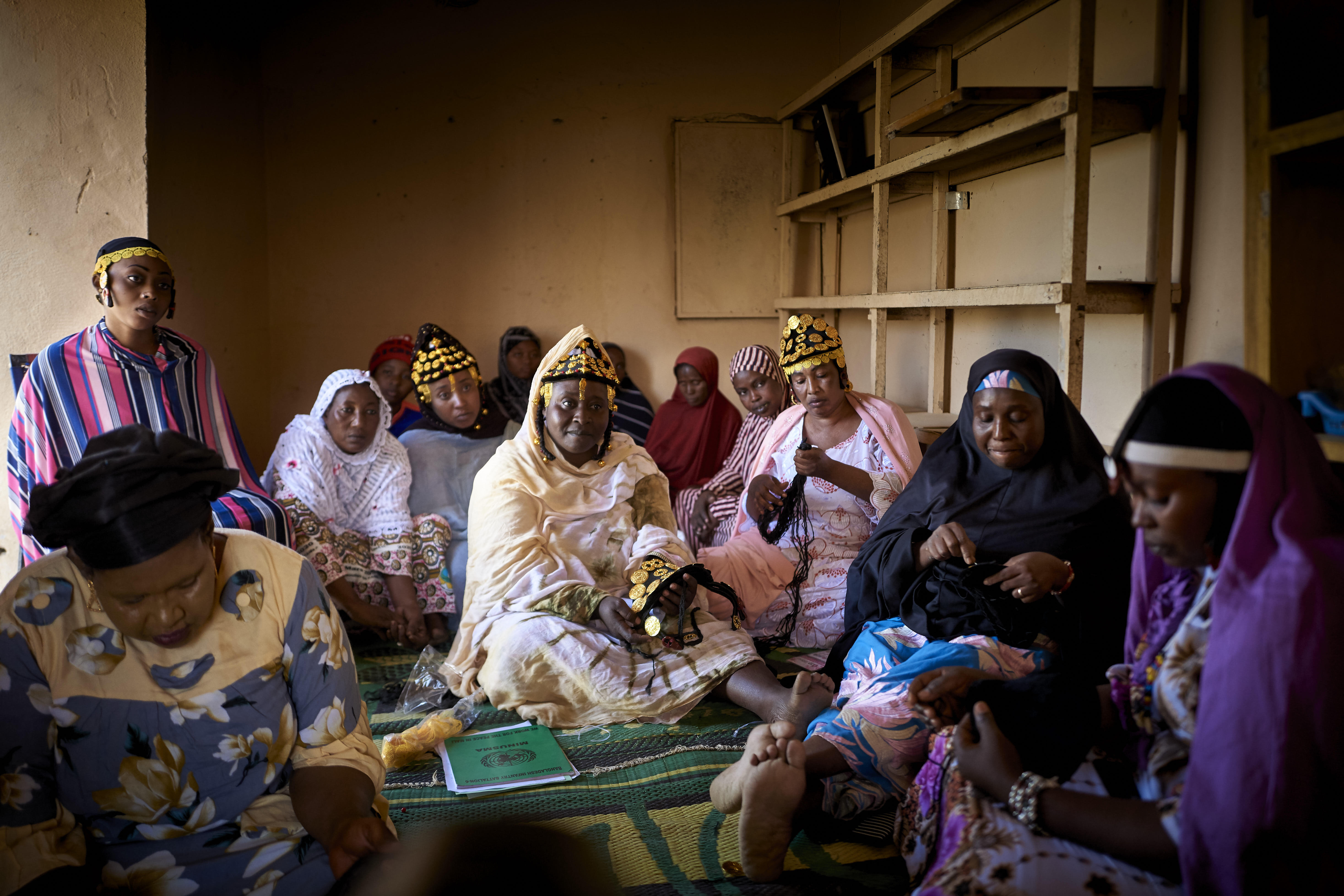
Ramatou employs 30 women in her workshop in Gao, Mali, where they hand craft traditional Malian headdresses.
Gao, Mali – Ramatou, a grandmother from Gao, is not only the head of her household, but also of a workshop where 30 displaced women hand craft the traditional headdresses worn by women as part of a Malian cultural heritage.
“Displaced or not, we, women of this group, have similar concerns and share the same solidarity and family unity values,” said Ramatou. “This project provides us with the necessary income to support our families and those of displaced women in particular, whose husbands struggle to find a job while in displacement.”
Funded by the EUTF and implemented by UNHCR and its partners, this project also continues to support women and their families, even after they’re able to return to their place of origin. For some of the women, Ramatou maintains the business partnership by sending them accessories to sell during weddings and social gatherings, and they split the revenue. And for those who acquired the skills while displaced in Gao, Ramatou sends them raw materials in their areas of return, so that they continue their trade and create accessories to sell. The economic impact of Ramatou’s workshop continues to spread through the women she has trained, benefitting families and communities throughout the region.
Niger
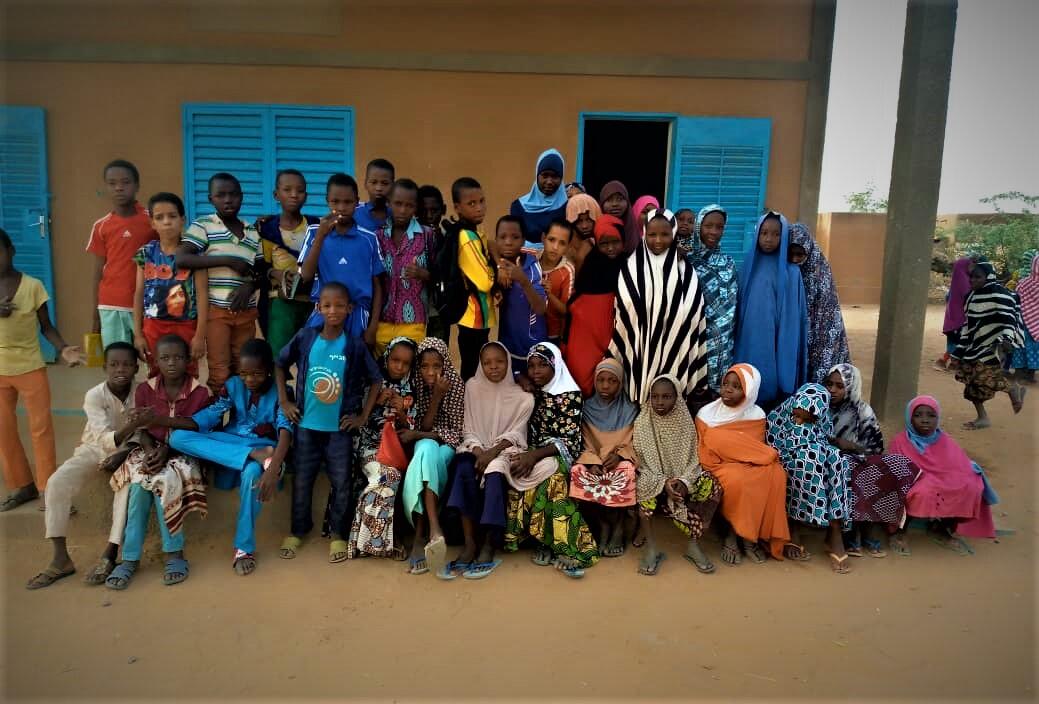
Thanks to EUTF, the town of Abala, Niger was able to build five classrooms and canteen space to accommodate refugee ad IDP children into their school system.
Abala, Tillaberi, Niger – The village of Abala is host to 16,280 Malian refugees and internally displaced persons (IDPs) who were forced to flee their homes. This influx put a strain on local schools to find classroom places for arriving children.
“We were facing a big challenge on daily basis. Our school capacity to receive additional refugee children was low. We did not have enough classes at that time,” said Abdoulaye Mahamadou, 45, the primary school director of Abala. “We used temporary shelter as school classes (straw huts), and children were exposed to the cold wind and higher temperatures.”
Thanks to support from EUTF, UNHCR was able to build five additional classrooms to increase the reception capacity of the Abala primary school. “Thanks to that initiative, we now have three additional teachers. The attendance rate rose from 92% to 96%,” said Mahamadou.
The new classrooms and the construction of canteens for school feeding programmes have increased the attendance rate for refugee, IDP and local children in Abala, which will improve literacy rates across all communities. “Thanks to this project, there is cohabitation and collaboration between refugees and the host community. Good teaching and learning conditions have been created and restored, and we are grateful for that,” said Zoubeirou, Chief of Abala city.
Mauritanie
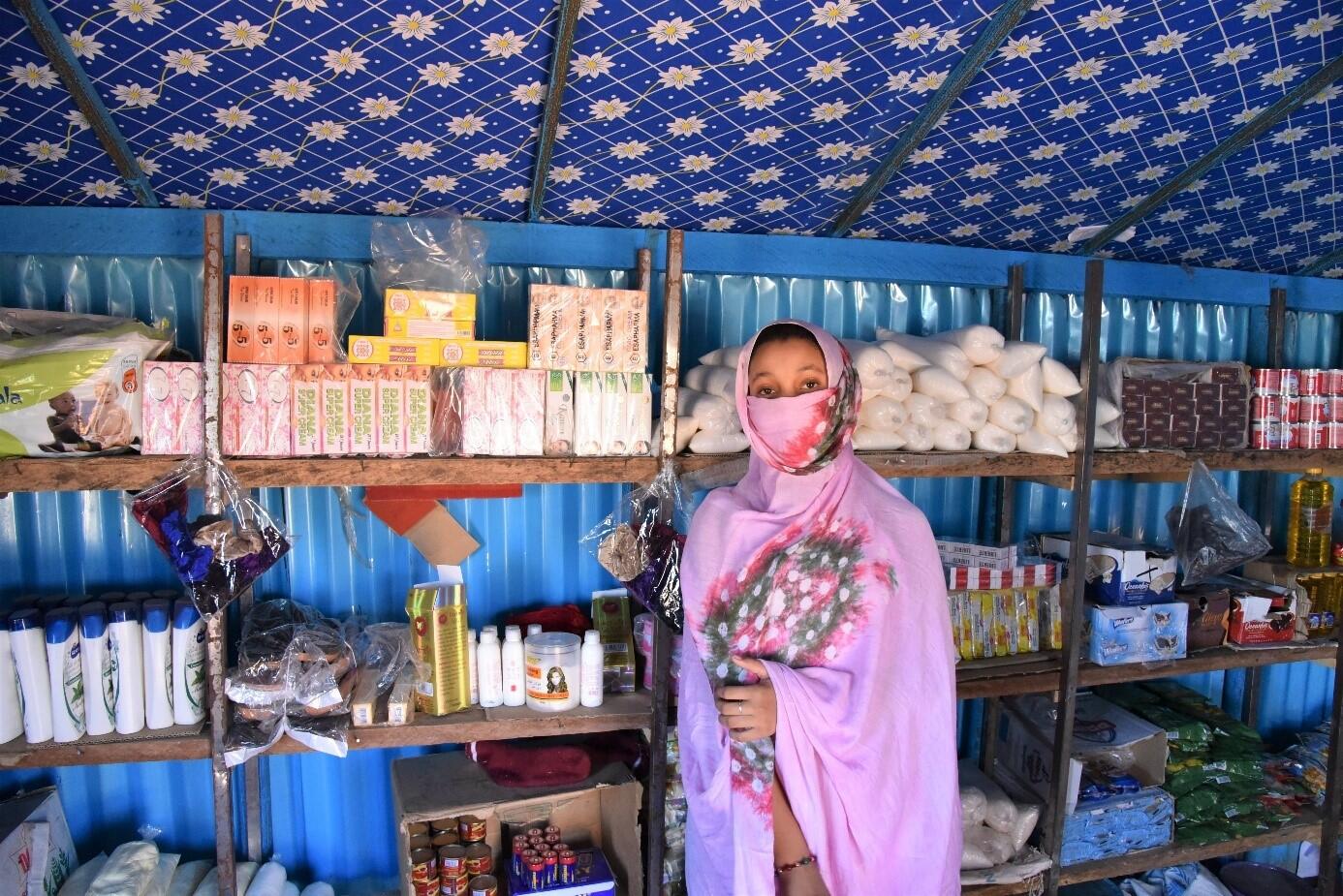
With support EUTF in Mauritania, Malian refugee Tinelbaraka, 20, was able to start her own successful shop in Mbera camp, and is already saving up to expand her business.
Mbera camp, Mauritania – In Mbera Camp, the EUTF-financed project is investing in the futures and self-reliance of refugees by creating livelihoods opportunities. Through trainings and grants, these refugee entrepreneurs are able to support their families and become independent from humanitarian assistance.
Sadam, a 27-year-old refugee in Mbera camp, received cash assistance and a short business management training from UNHCR, thanks to EUTF funding. The support helped him to set up his own small business.
“I buy animals, I feed them until they grow bigger and then I resell them more expensive than the price I paid for them,” said Sadam. “This allows me to support my family.”
Tinelbaraka, a 20-year-old refugee from Mali, was given support to open a store in the camp. She has big plans for the future of her small shop and is setting aside part of her earnings to expand her business. Thanks to her entrepreneurship and support from the EUTF, she has become self-reliant.
“I chose to do this; this is my own shop,” said Tinelbaraka.
With support from EUTF, Mohamed Ali was able to open his own business in Mbera camp where he is now selling his sartorial creations thanks to the cash assistance and training provided by COOPI, UNHCR’s partner supporting refugee self-reliance through livelihoods. “No one in my family is a tailor, I learnt how to sew in Mali, then I fled to Mbera camp and I worked for other people,” said Ali. “Now I have my own business.”
UNHCR is grateful for the generous support of the EUTF, and its commitment to improving the lives of forcibly displaced people in the Sahel and around the world.






